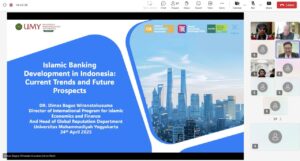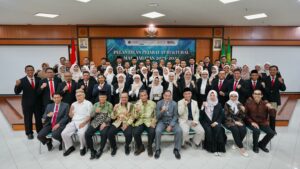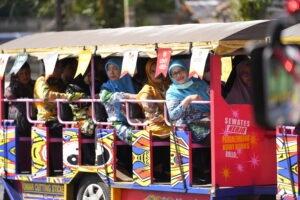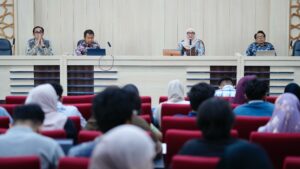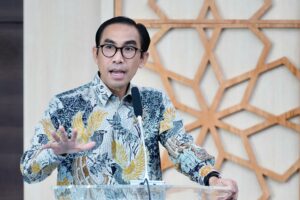Understanding level of Indonesian people of Islamic economy and banking is considered low. In fact, Islamic banks in Indonesia have had the great number and provided opportunities to people to transact and borrow financial capital.
As the result, UniversitasMuhammadiyah Yogyakarta (UMY) cooperated with Islamic Rule Management and Investigation Institute across Indonesia (INFAD), UniversitasSains Malaysia (USIM), and International Institute of Islamic Thought (IIIIT) USA organized International Conference. It proposed a theme “Islamic Economics and Financial Inclusion (ICIEFI) 2015”. It was conducted for two days, Thursday and Friday (23-24/4), in meeting hall of A.R. Fachruddin A, Floor 5, UMY.
Dr. MayusdhiMuqorobin, chief of committee, told that Indonesian people need develop thoughts of Islamic law which one of them is Islamic economy and banking. It would provide occasions for people to access financial issues and economic empowerment,” he said.
Masudi inserted that, besides discussing thought development of Islamic law and Islamic banking, this event was expected to create cooperation among institutes in fostering world Islamic economy.
One of the developments of Islamic economy and banking is waqaf (donation for religious or community use). The development was supported by the huge number of waqaf funds affected by a lot of innovations and methodology of gathering funds. “One of the reasons why the funds are always developing is cash waqaf. These recent years, cash could be noticed as dynamic media for public,” elucidated Dr. Mohammad bin Abdullah Hamid, Ph.D. from Islamic University of Malaysia as the speaker.
Mohammad added that waqaf now becomes one of the institutes of the oldest funding support acting as Muslim economic development in all life aspects. Islamic approach aswaqaf could be implemented to gain financial support throughbusiness and to eradicate povertythrough education,” he asserted.
The waqaf system is through having true partners and is underlainequal risks and advantages. “It could be carried out through finding fund and enhance high educative activities. In addition, social and financial impacts of waqaf for higher education are through harmonizing all the participants,” he mentioned.
Moreover, Prof. Dr. SyamsyulAnwarm, Head of MajelisTarjih PP Muhammadiyah (an assembly of Muhammadiyah) contended that,confronting poverty issues particularly in Indonesia, people ought to stand on a philosophy of Al-Ma’un as what Muhammadiyah has been implementing. In the philosophy, people could not be considered as good people if they could not make other good as well. “In the philosophy of Al-Ma’un, we are taught to share goodness to others and not only for themselves,” he explained.
Prof. Syamsul added that efforts of diminishing poverty and the poor could be undertaken by an individual or a group. Nevertheless, it needs to engage all elements of community. “Reducing poverty would not succeed if it is only done by an individual without involving other people, groups, or organizations. Hence, it needs involvement of all. Additionally, wealth would be valuable if it is employed for goodness,” he conveyed.



